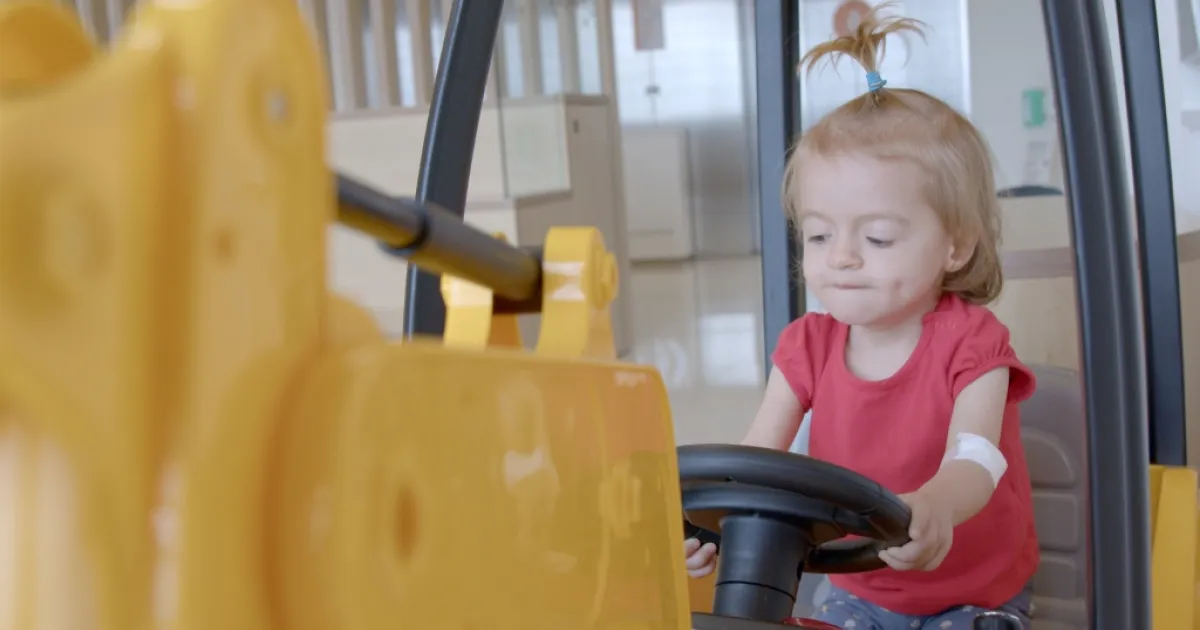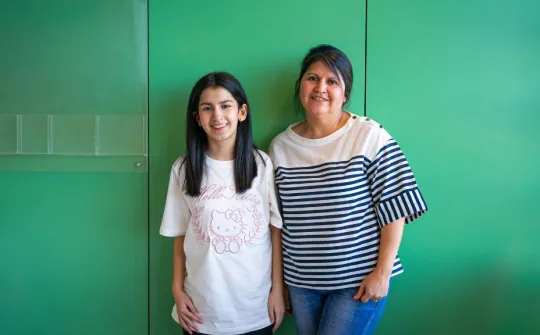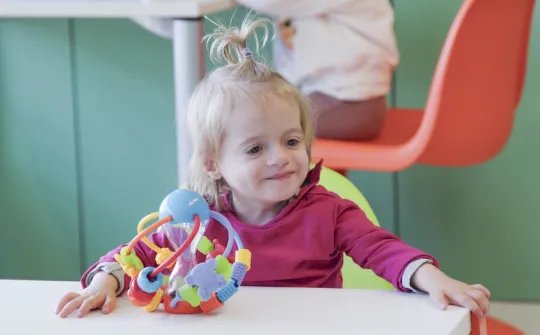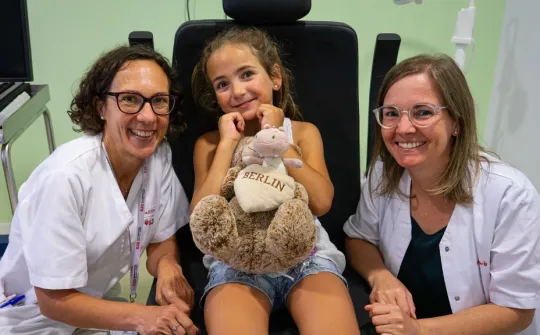‘I would have never imagined that there would be people with an undiagnosed disease in the 21st century’
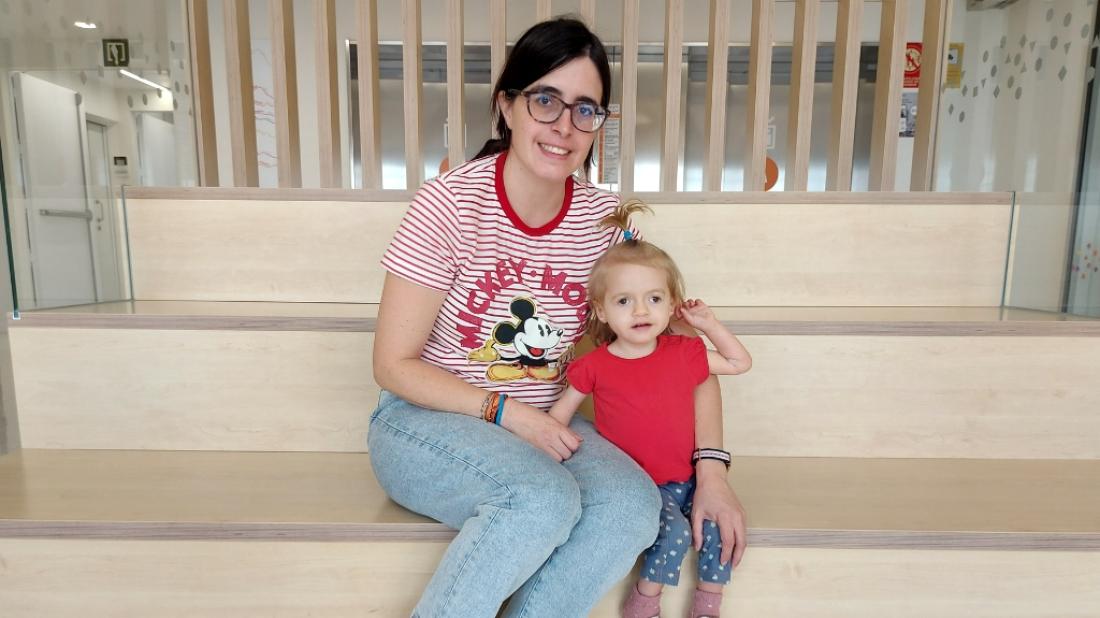
Lia’s mother recounts the journey her family has been on since Lia’s birth to put a name to the disease that causes her global developmental delay.
Citrullinemia, Prader-Willi syndrome, Mosaic Down syndrome, Silver Russell syndrome, Roifman syndrome... These are just some of the many syndromes that doctors have suspected Lia may have, and that have been gradually ruled out, one-by-one. Today, at two and a half years old, Lia is still undiagnosed. Her case is one of 12 that were selected to be analysed and studied by a group of bioinformaticians and genetics experts from around the world at the first Únicas Hackathon.
Lia was born on 28 December 2022 at 38 weeks, after medical staff monitoring the pregnancy detected a delay in fetal growth and recommended Lia's mother be induced. ‘When she was born, I noticed that she would sleep a lot, that she seemed disconnected, she wouldn't latch on... But everyone attributed it to her having a low birth weight,’ recalls Lia’s mother, Laura.
Three days after Lia was born, she and her mother were discharged home. But before that, the infant had her heel-prick test – a blood test for the early detection of severe congenital or metabolic diseases. A few days later, the alarm bells were ringing. ‘They called us to let us know that some results had come back abnormal and we had to repeat the test. The second test confirmed the abnormalities. At first, physicians suspected Lia had citrullinemia, a metabolic disorder, but they ruled that out,’ recounts the mother.
Awaiting diagnosis
That is when this Barcelona family’s journey began. The girl was admitted to the SJD Barcelona Children's Hospital for 15 days for a series of tests, but none of them gave results that could help orient a diagnosis. ‘Over the last two years, she has undergone so many more genetic tests, such as RAI, a whole exome sequence, a WES trio... There, I can't complain. Quite the opposite, actually. Some of these tests found genetic abnormalities, but results have been inconclusive,’ Laura explains.
She adds: ‘We still don't have an exact diagnosis today. I’d have never thought, before Lia was born, that there would be diseases that science didn't yet have an explanation for. I would have never imagined that there would be people with an undiagnosed disease in the 21st century’.
Being able to participate in a rare disease Hackathon is a new opportunity for this family. ‘We will do whatever we can and we will take advantage of every opportunity we are given to find out what affects our daughter. But we don't want to get ahead of ourselves, because we know that finding a diagnosis is very difficult, and because every time we've suspected a certain disease before, things didn't turn out well. First, trying to come to terms with what said disease means for Lia and then, when it's ruled out, you feel like you've lost your chance of a roadmap, that being the diagnosis,’ explains Laura.
At present, Lia suffers a global developmental delay. ‘She doesn't have any severe intellectual disability, but there's an overall delay. At two and a half years old, she only weighs seven kilos, she can’t walk—but is about to start—she is only just starting to speak... She’s getting there, little by little,’ concludes the mother.
Laura and Lia's testimony
